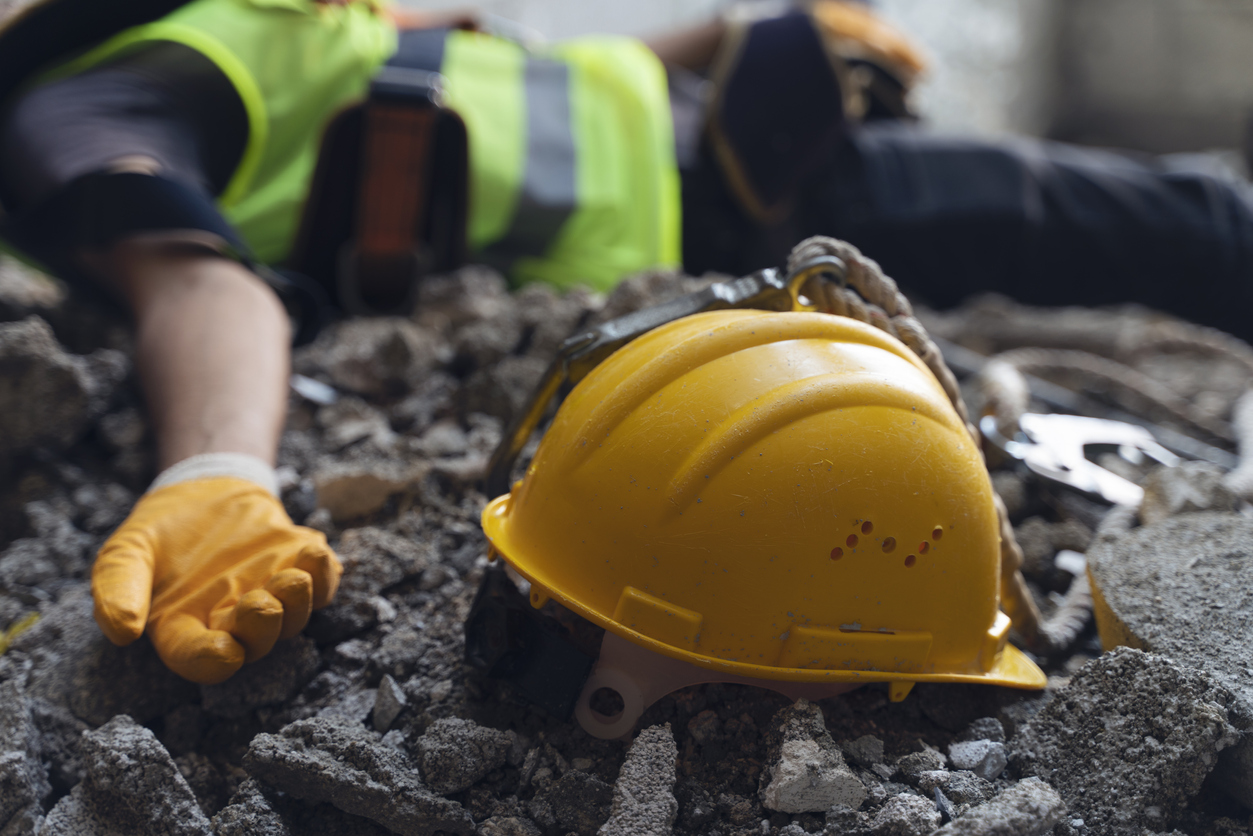Hammers Car Accident & Personal Injury Lawyers | October 10, 2025 | Construction Accident

Construction sites are busy, loud, and full of heavy equipment and dangerous tools. While this work is necessary to build homes, roads, and offices, it also comes with serious risks. That’s why it’s important for all workers on a construction site to have the right safety gear.
Wearing the right equipment can protect workers from getting hurt and even save lives. In Georgia, construction accidents are among the leading causes of workplace injuries. Many of these injuries could be prevented if proper safety equipment were in place and used correctly.
In this article, we’ll talk about the essential gear that every construction site should have to keep workers safe.
Head Protection: Hard Hats Are a Must
One of the most important pieces of safety gear is a hard hat. Hard hats protect the head from falling objects, which are common on construction sites. These hats are made from strong plastic and are designed to absorb the impact if something falls from above.
Hard hats should be worn at all times while on a construction site, no matter how small the job may seem. Some hats also come with built-in face shields or earmuffs for extra protection. Making sure every worker wears a hard hat can help prevent serious head injuries and brain trauma.
Eye and Face Safety: Protecting Vision
Construction sites often involve cutting, welding, or grinding, which can send sparks, dust, and debris flying into the air. Without eye protection, these particles can cause painful and permanent damage.
Safety glasses or goggles should be worn during any task that involves flying particles. For welding jobs, workers need face shields or helmets with darkened lenses to block the bright light and protect their eyes from burns.
If chemicals are being used, goggles can stop splashes from getting into the eyes. Having the right eye and face protection helps keep workers from suffering long-term injuries that can affect their ability to work and live normally.
Hearing Protection: Guarding Against Loud Noises
Construction sites are noisy places. Loud tools like jackhammers and drills can cause hearing loss if workers are not protected. Over time, constant exposure to high noise levels can lead to permanent damage.
Earmuffs and earplugs are both effective ways to reduce noise levels. Earmuffs cover the entire ear and are useful for very loud environments, while earplugs fit inside the ear canal and can be more comfortable for long-term use.
By using hearing protection regularly, workers can avoid hearing loss and other ear problems.
Hand and Arm Protection: Avoiding Cuts and Burns
Workers often use their hands to operate heavy tools, handle sharp materials, or move hot objects. Without protection, hands and arms are at risk for cuts, burns, and even crushed fingers. Gloves are essential safety gear on any job site.
The type of glove needed depends on the task. For example, rubber gloves protect against chemicals, while leather gloves offer protection from sharp or rough materials. Some gloves are even cut-resistant or heat-resistant.
Wearing the proper gloves can keep workers safe from serious hand injuries that might require surgery or lead to long-term disability.
Foot Safety: Steel-Toe Boots Matter
Heavy objects falling or rolling can crush feet easily. Sharp materials on the ground can also cause cuts or punctures. That’s why sturdy footwear is a must on construction sites. Steel-toe boots are the best choice for foot safety.
These boots have a strong cap over the toe area to stop injuries from heavy or sharp objects. Some boots also have slip-resistant soles, which help prevent falls on wet or uneven surfaces.
Ensuring all workers wear the right boots helps lower the risk of foot injuries that can keep workers off the job for weeks or months.
Staying Prepared and Protected on Every Job
Construction work is dangerous, but the right safety gear makes it much safer. From hard hats and gloves to respirators and harnesses, each piece of equipment plays a critical role in keeping workers safe.
Every site should be properly equipped, and every worker should be trained to use their gear the right way. Safety should never be an afterthought — it should be the first step on any job site.
If you’ve been injured on a construction site in Georgia, contact Hammers Law Firm to schedule a free consultation with a member of our team.
We serve Fulton County and its surrounding areas:
Hammers Car Accident & Personal Injury Lawyers – Atlanta
201 Joseph E Lowery Blvd NW Suite 312,
Atlanta, GA 30314
Open 24/7
(770) 900-9000
Hammers Car Accident & Personal Injury Lawyers – Sandy Springs
5555 Glenridge Con, Suite 975,
Sandy Springs, GA 30342
Open 24/7
(678) 990-7024
Hammers Car Accident & Personal Injury Lawyers – Lawrenceville
265 Culver St S. Suite A.
Lawrenceville, GA 30046
Open 24/7
(678) 626-5067
Hammers Car Accident & Personal Injury Lawyers – Mableton
5701 Mableton Pkwy SW Suite 108,
Mableton, GA 30126
Open 24/7
(706) 480-5487
Hammers Car Accident & Personal Injury Lawyers – Smyrna
2400 Herodian Way Ste#220,
Smyrna, GA 30080
Open 24/7
(678) 922-4497
Hammers Car Accident & Personal Injury Lawyers – Roswell
110 Mansell Cir #111,
Roswell, GA 30075
Open 24/7
(678) 582-8466

